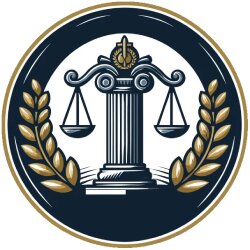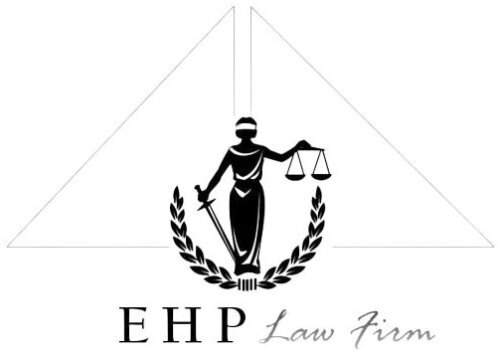Best Government Relations & Lobbying Lawyers in Indonesia
Share your needs with us, get contacted by law firms.
Free. Takes 2 min.
Or refine your search by selecting a city:
List of the best lawyers in Indonesia
About Government Relations & Lobbying Law in Indonesia
Government relations and lobbying in Indonesia involve engaging with government officials and agencies to influence public policy and decision-making. This practice is critical for organizations and individuals seeking to have a voice in the legislative and regulatory processes that impact their interests. In Indonesia, government relations encompass a range of strategies, including lobbying, advocacy, and building strategic partnerships with governmental bodies. The legal framework governing these activities is designed to ensure transparency, fairness, and ethical conduct.
Why You May Need a Lawyer
Legal assistance may be necessary for several reasons in government relations and lobbying in Indonesia:
- Compliance with Local Laws: Lawyers can help ensure that lobbying activities comply with the legal framework, preventing any legal repercussions.
- Navigating Complex Regulations: The intricate nature of Indonesian regulations may require expert advice to optimize strategies and outcomes.
- Drafting Contracts and Agreements: Legal expertise is crucial in preparing documents that guide interactions with governmental bodies.
- Dealing with Disputes: Lawyers can represent clients in disputes that arise from government relations and lobbying activities.
- Ethical Guidance: Lawyers provide counsel on maintaining ethical standards within lobbying activities, as failure to do so can result in legal penalties.
Local Laws Overview
In Indonesia, several aspects of local laws are relevant to government relations and lobbying:
- Anti-Corruption Measures: Indonesia's anti-corruption laws oversee lobbying activities to discourage corrupt practices and promote transparency.
- Transparency Regulations: All lobbying activities must comply with Indonesia's regulations on transparency, ensuring all interactions with the government are recorded and transparent.
- Registration and Reporting Requirements: Lobbyists are often required to register and report their activities, including the nature of their engagements and financial expenditures.
- Foreign Lobbying Restrictions: Foreign entities face additional restrictions and must work closely with Indonesian counterparts to pursue lobbying activities.
Frequently Asked Questions
What is considered lobbying in Indonesia?
Lobbying in Indonesia involves activities aimed at influencing government decisions, including legislative, regulatory, and executive actions. It covers both direct and indirect engagements with policymakers.
Are there specific licensing requirements for lobbyists in Indonesia?
While there is no specific national license, lobbyists may have to register with specific government agencies depending on the sector in which they operate. Compliance with transparency regulations is essential.
How can a lawyer help in government relations?
Lawyers assist by providing legal advice on compliance, drafting necessary documentation, representing clients in disputes, and ensuring ethical conduct in all lobbying activities.
Is lobbying considered illegal in Indonesia?
Lobbying is legal in Indonesia, provided it adheres to the country's laws, including anti-corruption and transparency requirements.
What are the penalties for unauthorized lobbying activities?
Penalties may include fines, imprisonment, and banning from future lobbying activities, depending on the severity of the offense and breach of regulations.
How transparent should lobbying engagements be?
All lobbying activities should be fully transparent, with proper disclosures on the nature and financial aspects of the engagements as per Indonesian regulations.
Can foreign nationals engage in lobbying in Indonesia?
Foreign nationals can engage in lobbying but must comply with additional restrictions and often collaborate with Indonesian firms to navigate the legal landscape effectively.
What ethical considerations should be kept in mind?
Lobbyists must adhere to ethical standards, avoiding conflicts of interest, bribery, and corruption, while ensuring honesty and integrity in all interactions with governmental bodies.
Is it common to use third-party agencies for lobbying in Indonesia?
Yes, businesses and organizations often engage third-party agencies that specialize in government relations to manage their lobbying efforts effectively.
What steps should be taken if a lobbying initiative faces a legal challenge?
Seek legal advice promptly to understand the nature of the challenge and develop a defense strategy. It's crucial to have knowledgeable legal representation in such situations.
Additional Resources
For those seeking more information or needing assistance with government relations and lobbying in Indonesia, the following resources may be helpful:
- Indonesian Chamber of Commerce and Industry (KADIN): Offers resources and support for businesses in navigating regulatory frameworks.
- Corruption Eradication Commission (KPK): Provides guidelines and information on anti-corruption measures and compliance.
- Indonesian Law Societies: Professional organizations that offer networking and resources for legal professionals engaged in lobbying.
Next Steps
If you require legal assistance in the field of government relations and lobbying in Indonesia, consider the following steps:
- Identify Your Needs: Clearly define the legal issues or objectives you face to find the right legal expert for your situation.
- Consult a Legal Professional: Reach out to a lawyer or law firm specializing in government relations and lobbying to receive expert advice tailored to your needs.
- Prepare Necessary Documentation: With your lawyer, prepare any required documents or submissions to comply with local regulations and support your lobbying initiatives.
- Stay Informed: Keep up-to-date with any changes in laws or regulations that may impact your lobbying efforts and adjust your strategies accordingly.
Lawzana helps you find the best lawyers and law firms in Indonesia through a curated and pre-screened list of qualified legal professionals. Our platform offers rankings and detailed profiles of attorneys and law firms, allowing you to compare based on practice areas, including Government Relations & Lobbying, experience, and client feedback.
Each profile includes a description of the firm's areas of practice, client reviews, team members and partners, year of establishment, spoken languages, office locations, contact information, social media presence, and any published articles or resources. Most firms on our platform speak English and are experienced in both local and international legal matters.
Get a quote from top-rated law firms in Indonesia — quickly, securely, and without unnecessary hassle.
Disclaimer:
The information provided on this page is for general informational purposes only and does not constitute legal advice. While we strive to ensure the accuracy and relevance of the content, legal information may change over time, and interpretations of the law can vary. You should always consult with a qualified legal professional for advice specific to your situation.
We disclaim all liability for actions taken or not taken based on the content of this page. If you believe any information is incorrect or outdated, please contact us, and we will review and update it where appropriate.
Browse government relations & lobbying law firms by city in Indonesia
Refine your search by selecting a city.
















